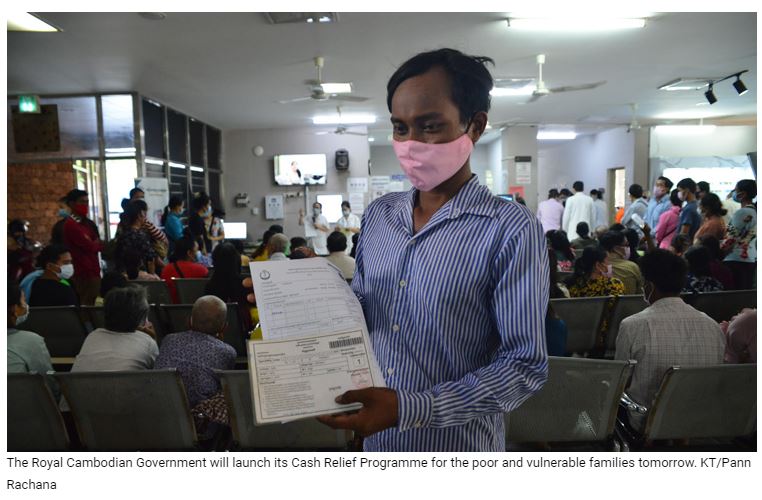Cambodia: The positives and the negatives of money transfer programmes
Yesterday’s announcement by Prime Minister Hun Sen that the government will be transferring monthly cash payments of $25 million to more than 600,000 of the Kingdom’s poorest families, has been widely applauded but has also raised some concerns.
As several leading studies have concluded, while cash transfer programmes have been shown to have many benefits, they also have detrimental effects on non-beneficiaries and provide no real long-term economic improvements.
“The research community has accumulated a lot of evidence about the benefits of cash transfers in fighting poverty and malnutrition,” said Eeshani Kandpal, an economist at the World Bank.
“But we are also learning that these programmes can have unintended consequences for non-beneficiaries and these need to be taken into account when designing the programmes.”
The main benefits are reduced poverty, increase in school enrolment and improved nutrition. The consequences are inflation of basic food and rent prices, a subclass reliant on continued donations and psychological resentment by non-beneficiaries.
Another World Bank study titled, “How should
we design cash transfer programmes?” found that the available evidence suggests that the short-term effects of cash transfer programmes are not sustained.”
“Many programmes end up being palliative, meaning that they improve outcomes while the income support is in place, but fail to cause sufficient accumulation of human [or other forms of] capital to alter long-term outcomes.”
“Beneficiaries end up back at square one soon after the cessation of transfers,” it added.
In response, studies have outlined that local policymakers should implement “cash plus” programmes that link cash payments with one or more types of complementary support.These include providing free and quality educational training and nutritional programmes, as well as the provision of support for counselling and the facilitation of access to basic employment services.
The Royal Cambodian Government will launch its Cash Relief Programme for the poor and vulnerable families during this COVID-19 crisis tomorrow.
“The cash fund is aimed to assist those whose job has been suspended because of the COVID-19 crisis, especially the poor in remote areas who are facing food shortages”, Mr Hun Sen explained in a Facebook post yesterday. “The Royal Government of Cambodia has sought out ways to help poor people in this critical situation,” he added.
According to the terms of the sub-decree, families designated as IDPoor 1 and IDPoor 2 who live in Phnom Penh and other cities will obtain $30 per month. Those living in rural areas will get $20 per month.
Individuals and other groups will receive $6 to $13 a month depending on a range of circumstances.
Source: https://www.khmertimeskh.com/50737046/the-positives-and-the-negatives-of-money-transfer-programmes/


 English
English




